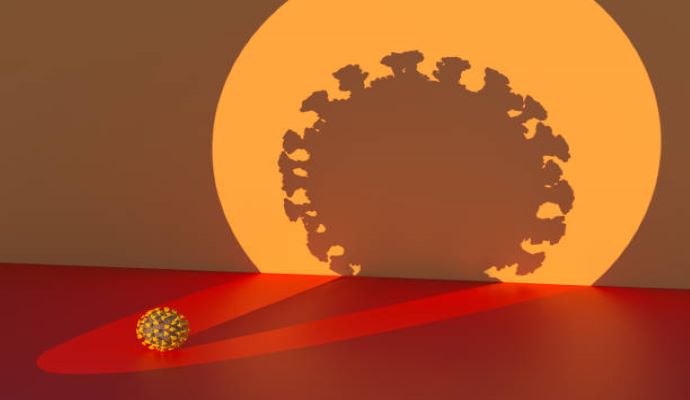NIH launches long COVID clinical trial for nervous system dysfunction
The NIH’s RECOVER-AUTONOMIC clinical trials explore treatments for autonomic nervous system dysfunction caused by long COVID.

Source: Getty Images
- On March 12, 2024, the NIH announced that it would open another clinical trial on long COVID, evaluating treatment options for COVID-induced autonomic nervous system dysfunction, as part of the Researching COVID to Enhance Recovery (RECOVER) Initiative.
The RECOVER initiative has already launched phase 2 clinical trials on other effects of long COVID, including cognitive dysfunction; however, RECOVER-AUTONOMIC will launch two more phase 2 clinical trials to assess treatments for COVID-induced postural orthostatic tachycardia syndrome (POTS), an autonomic nervous system disorder.
POTS is characterized by multiple symptoms, including elevated heart rates, dizziness, and fatigue, which are felt when a person stands up.
“As a long COVID patient, I know firsthand how disruptive and frightening symptoms, including rapid heart rate, dizziness, and fatigue, can be. Patient representatives across RECOVER have also shared that these symptoms are some of the most debilitating symptoms of long COVID,” said Heather Marti, co-chair of the RECOVER National Community Engagement Group, in the NIH press release. “These trials are giving me and others with long COVID hope that it will restore our health and get us back to the lives we so desire.”
The studies will focus on three potential treatment options to tackle post-COVID POTS.
One treatment, Gamunex-C, is an intravenous immunoglobulin given through an infusion to deliver antibodies to patients and protect against infection. Another treatment, ivabradine, is an oral medication that reduces heart rate.
In the first trial, participants will be randomly assigned to receive Gamunex-C, ivabradine, or a placebo. Once assigned to a group, they will undergo a second randomization to explore the third treatment option: coordinator-guided, non-drug care.
During the second randomization, the investigators will assign patients to the standard non-drug care for post-COVID POTS or the coordinator-guided, non-drug care.
“Patients who develop POTS after having COVID-19 are often severely limited by their symptoms, and there are no proven effective treatments,” added Christopher Granger, MD, Duke University Medical Center, who is co-leading RECOVER-AUTONOMIC, in the release. “These interventions were selected because they have shown potential benefit in treating symptoms for POTS. The theory we’re testing is that they might also help individuals with long COVID.”
